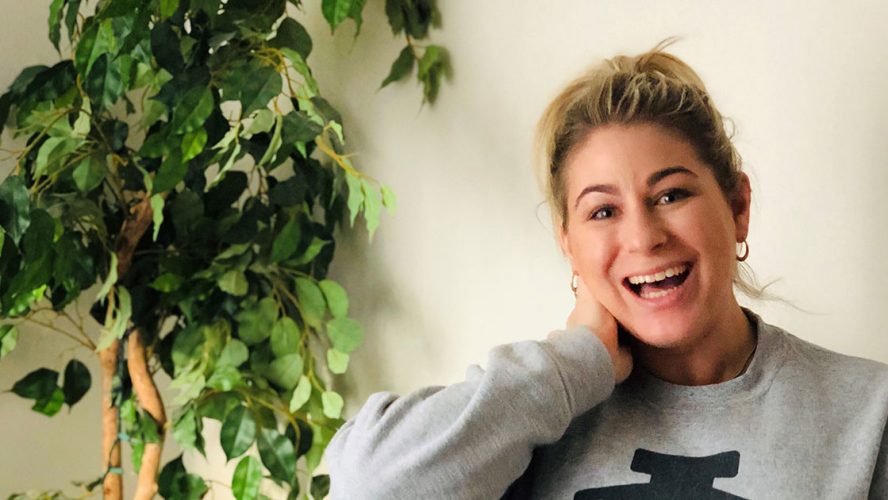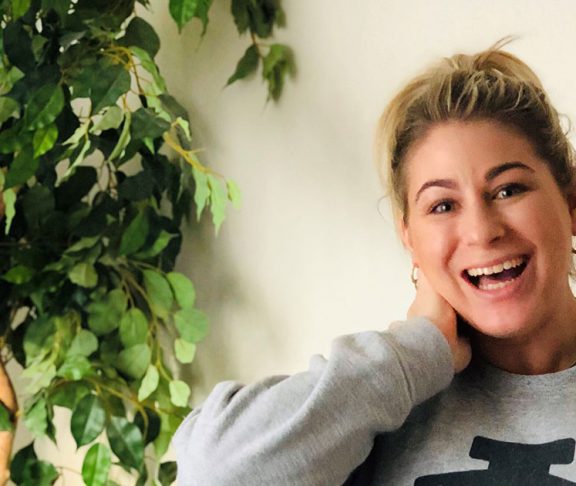Jillian Rippolone, influencer and diabetes advocate, was diagnosed with type 1 diabetes as a child and now raises awareness of the disease.
How was being diagnosed so close to your brother?
My brother Joey and I were diagnosed with type 1 juvenile diabetes at ages 7 and 8 years old. We were diagnosed one year apart. Joey was diagnosed extremely late, and was in diabetic keto acidosis (DKA) when he was diagnosed. The doctors said he was minutes away from death, his blood sugar was off the charts. One year later, I was diagnosed with type 1 diabetes. At that time, my parents knew the symptoms (from my brother) that I was displaying and rushed me to the hospital. There, I was diagnosed with type 1. We were the “rare” case of diabetic siblings for the early 1990s, for diabetic siblings was uncommon, according to doctors. We also had no family history of any kind of diabetes in our family.
Having a type 1 sibling was a blessing. Even though we did not know any other kids with type 1 diabetes, we had each other. We pricked our fingers together, gave injections together, went to the doctors together, got blood drawn together, laughed and cried together too. We were the diabetic duo! We even went to diabetes camp together! Life with type 1 was tough, but we were in it and doing it, together. My mom didn’t have it easy, raising two diabetic children as a single mom, but my mom gave us the best life that she could to make us feel “normal” and her knowing we had each other made it even better!
My brother is my best friend, even to this day! While I’m loud and proud about showing off my diabetes and my gadgets, like my insulin and pump and continue glucose monitor, he is quiet and humble about it, but he supports me, and I support him. We were always close, but I think both having diabetes made us even closer!
How have you been able to be a support system for each other?
When my brother and I were growing up, diabetes technology was non-existent at that time. We didn’t have diabetes technology like we do now, such as a continuous glucose monitor that tells us our blood sugars on a device every 5 minutes. My brother was extremely hypoglycemic and struggled with low blood sugars. He would often pass out from his severe low blood sugars that happened so suddenly. I have watched my brother seize on the floor or fall to the ground so many times as a child and teenager and revived him. I had to inject him with a long needle full of glucagon many times, because that was our job as siblings, to protect and always help each other.
Even as adults, we always support each other. While I am fortunate to have good health insurance, that’s not the case for my brother. He has high deductibles and high copays, even with a “good salary.” I help my brother get his diabetes supplies, even at age 30 and 31. It costs him so much money, I support him by sharing my own diabetes supplies and insulin with him. I would never leave my brother without our lifesaving medication, I would save him over myself any day.
Can you speak to what it was like when you were hospitalized for DKA?
Diabetic Ketoacidosis, also known as DKA is a diabetic’s worst nightmare. It can be life-threatening for a person with type 1 diabetes. Our bodies start to shut down, because we aren’t getting the hormone insulin for our bodies to function. Think about a fish out of water, if they don’t get water eventually, they die. Same thing with a type 1 diabetic, if we do not get enough insulin that our bodies need to survive, our organs shut down, causing death.
There can be many reasons as to why and how a type 1 can go into DKA, but sometimes it’s also inevitable and just not our fault.
I have been in DKA at least three times in my life and I wouldn’t wish it upon anyone. One time it was just a freak accident. I was on an insulin pump with tubing, that gets attached to my body where insulin gets pumped into my body. Well, the tubing was bent and my insulin pump didn’t inform me of an occlusion, pump error, so my insulin pump was thinking I was getting insulin, but in fact, my body wasn’t receiving any insulin at all, which led me into DKA overtime.
My body was shutting down and I felt like I was dying. I was extremely dehydrated with blood sugars that read “high,” over 500, on my meter. A normal glucose level is around 120, just to give you an idea how sick I was. I couldn’t keep down anything, not even water. I was dry heaving and felt empty. I laid on my bedroom floor and couldn’t move, my body was giving up on me. That’s when my brother placed me in the car and drove me to the hospital.
I don’t remember the car ride because I was so sick. I just remember laying in a hospital bed with bright lights piercing through my eyes and being hooked up to an IV drip thinking, this could be it. It wasn’t though, I was lucky that day.
DKA is no joke. Even when we think we are doing everything right in our diabetes management, freak things can happen.
You’ve spoken about being young and frustrated with managing your diabetes. What happened when you stopped prioritizing your diabetes management in college and what lead you to turn things around?
I’ve lived a long life with diabetes since I was diagnosed at 8. I would say “we” were in a love-hate relationship, except, for me, it was mostly hate my entire adolescent and young adult years. I hid my diabetes from the world growing up and in school. I didn’t talk about it, I would take my insulin pump off during different events, just so people couldn’t see it, because I was so afraid of being judged, like all teenagers. My brother was bullied in school, I didn’t want to be bullied too.
The years came and went and because of my diabetes denial, I had little diabetes management, causing myself to go into DKA. I was partying, drinking, eating anything that I wanted and not monitoring my blood sugars or giving myself enough insulin for what my body was consuming. I think DKA was my final straw. After laying lifeless in a hospital bed for the second or third time at that point, I knew I had to make changes. I survived college at this point, becoming a real adult. I couldn’t let diabetes dominate me any longer. I wanted to make changes but had no clue where to start.
I would say I was mostly self-taught when it came to diabetes education. At this time, Instagram was a new thing and I happened to stumble upon a diabetic Instagram account. I thought to myself, “people talked about and posted about diabetes?” A light went off for me that year, this was around 2016. All because I found a girl, a stranger by the way, on the internet to relate too, who wore an insulin pump like me. That’s when I really made changes, when I found the diabetic online community. I wanted to be like that girl, confident with diabetes.
I then created my Instagram account “T1Dchick” and had no idea what those doors would open for me, but it saved me. T1Dchick saved me from my own worst enemy. I learned so much through the diabetes online community, and even in 2016, talking about diabetes was just a “newer” thing. I would post about the good blood sugar days, the bad blood sugar days, share my pump changes, share my everyday life with diabetes with other diabetics who “got it”. I wasn’t alone anymore, I had community and a support group.
Since my denial years, I have transformed myself into the best version of me. I once had an a1c of a 14 percent. Today it’s down to a 5.6 percent. I am a powerhouse of diabetes education and knowledge. I’m also a survivor. I survived DKA, I survived diabetes “burnout,” I suppressed that angry lost girl, and made her a diabetes superstar, because of my struggles.
I’m involved with five big diabetic based organizations. I use my social media platforms to advocate and spread diabetes awareness. I have been interviewed from top news stations around the country like ABC and FOX. I have been hosted on several podcasts, radio stations and patient panels. I speak across the country on diabetes. I’ve brought groups of people to Canada for affordable insulin while sitting next to Senator Bernie Sanders. I’ve been invited to presidential debates because of my healthcare advocacy. I answer countless messages a day helping those struggling with diabetes all while working a full time job. I run one of the biggest diabetes donation and trade posts online.
This October, I won the Myabetic social media “Type 1 Diabetes Female Influencer” Award in Hollywood and this month, my photo was featured in Times Square promoting one of the biggest names in diabetes technology, Dexcom!
So many doors have opened for me because I stopped letting a disease control my life. Now, I control it. Today, I inspire others to live beyond diabetes and live the best possible life that they can with our disease. I once read, “until there is a cure, there is community” and it’s so true!

